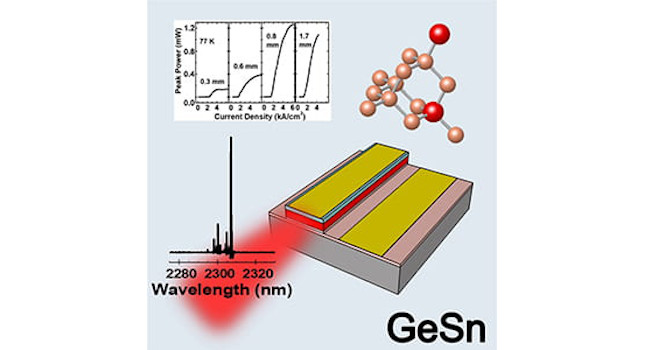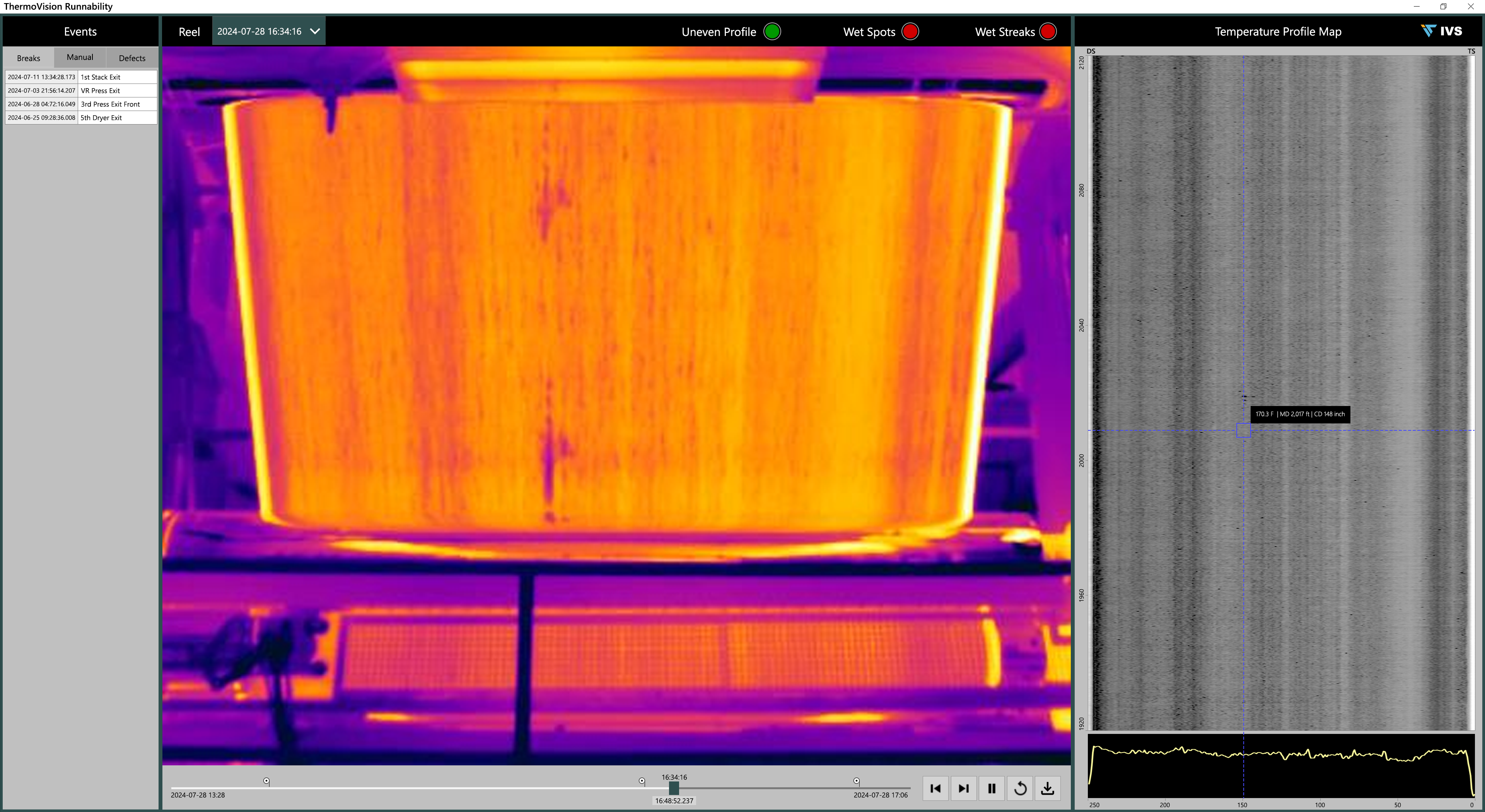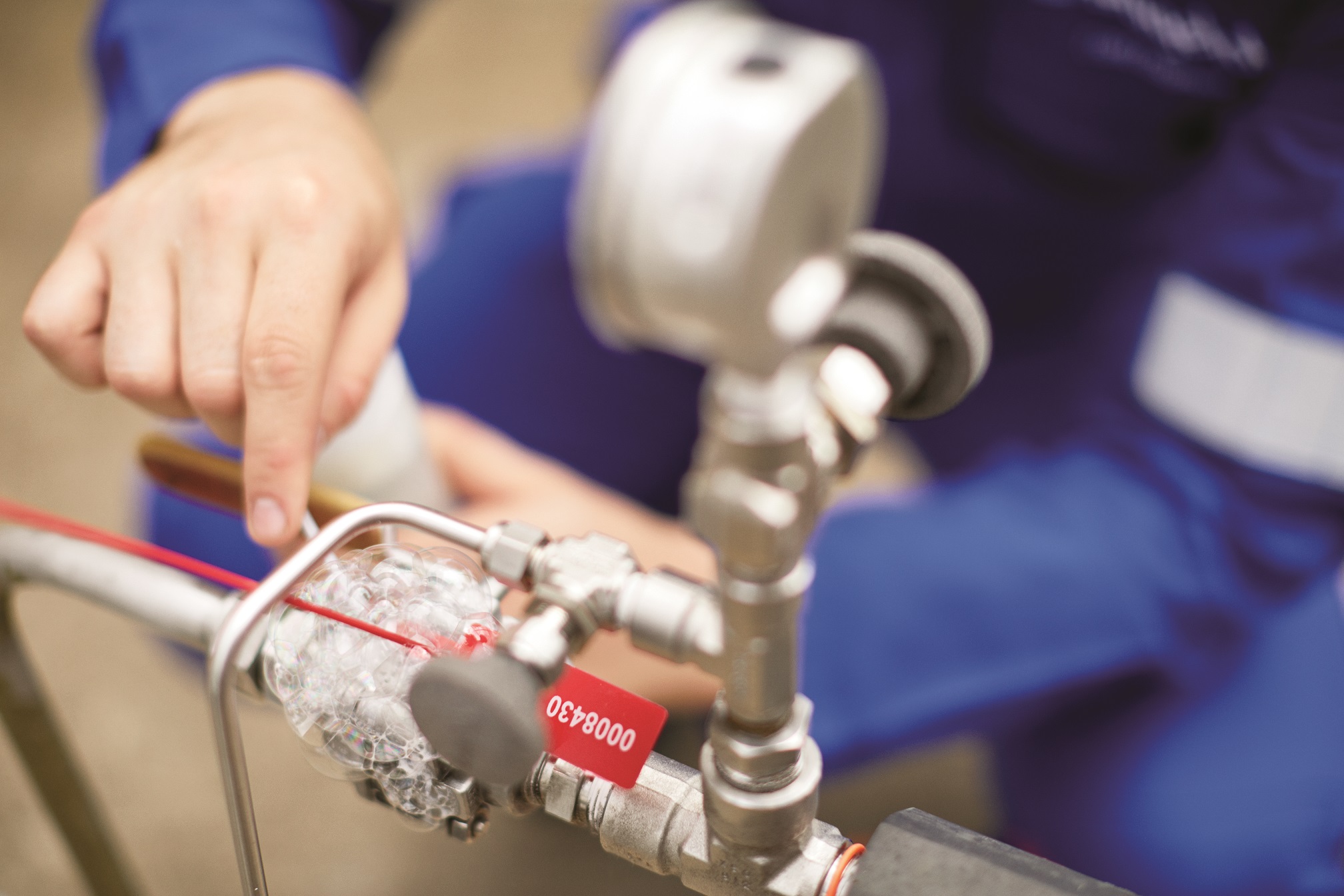An electrically-injected laser made with germanium tin has been developed and is used as a semiconducting material for circuits on electronic devices.

Materials science researchers, led by University of Arkansas electrical engineering professor Shui-Qing “Fisher” Yu, have demonstrated the first electrically injected laser made with germanium tin. Used as a semiconducting material for circuits on electronic devices, the diode laser could improve micro-processing speed and efficiency at much lower costs. In tests, the laser operated in pulsed conditions up to 100 K, or -279°F.
“Our results are a major advance for group-IV-based lasers,” Yu said. “They could serve as the promising route for laser integration on silicon and a major step toward significantly improving circuits for electronics devices.”
The research is sponsored by the Air Force Office of Scientific Research, and the findings have been published in Optica, the journal of The Optical Society. Yiyin Zhou, a doctoral student in the microelectronics-photonics program authored the article. Zhou and Yu worked with colleagues at several institutions, including Arizona State University, the University of Massachusetts Boston, Dartmouth College in New Hampshire and Wilkes University in Pennsylvania. The researchers also collaborated with Arktonics, an Arkansas semiconductor equipment manufacturer.
The alloy germanium tin is a promising semiconducting material that can be easily integrated into electronic circuits, such as those found in computer chips and sensors. The material could lead to the development of low-cost, lightweight, compact and low power-consuming electronic components that use light for information transmission and sensing.
Yu has worked with germanium tin for many years. Researchers in his laboratory have demonstrated the material’s efficacy as a powerful semiconducting alloy. After reporting the fabrication of a first-generation, “optically pumped” laser, meaning the material was injected with light, Yu and researchers in his laboratory continue to refine the material.



